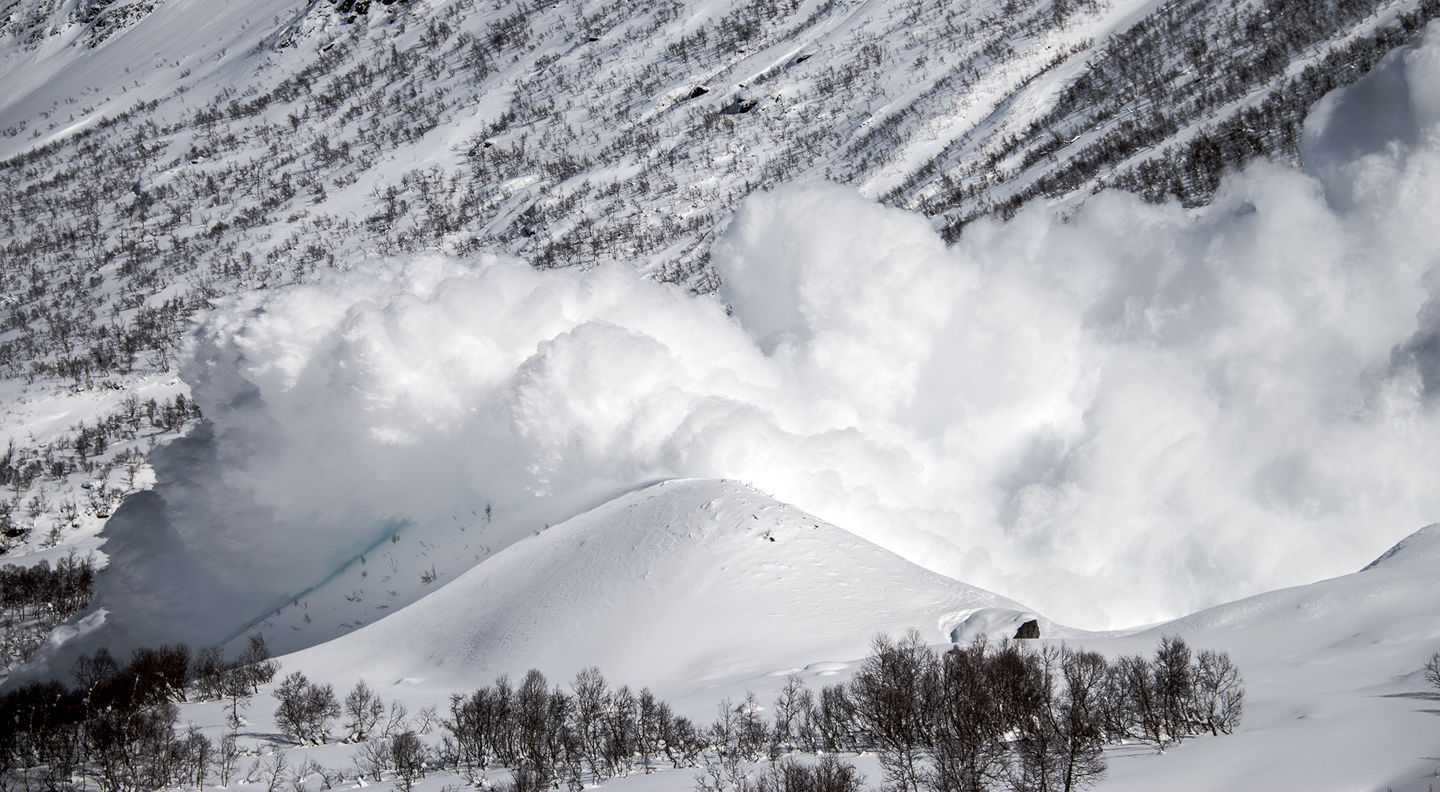Avalanches and slush flows

Avalanches are triggered by a complex interaction between snow, weather, and terrain. Every winter avalanches lead to closed road and railway sections, as well as the evacuation of people from their homes.
With over 50 years of experience from research and consulting assignments in the field of avalanches, NGI has built up core expertise on conditions that lead to avalanches and avalanche movement, as well as measures that can reduce the risk associated with avalanches. Central aspects in this context are correct information on meteorology (precipitation, wind, and temperature), topographic conditions, and an understanding of avalanche dynamics.
NGI’s expertise in avalanches and slush flows
- assessment of the danger and risk of avalanches and slush avalanches
- landslide hazard mapping for buildings, roads, and railways according to the current regulations
- assistance in case of acute danger of snow or slush avalanches
- daily avalanche warning in exposed areas
- planning of security measures and strengthening of buildings to withstand the load of an avalanche
- assessment of snow drift and measures against unwanted snow drift
courses, training, and lectures
Research and development
Since 1972, NGI has been allocated national responsibility for conducting avalanche research in Norway. This research contributes to increasing our knowledge on:
- landslide dynamics with the implementation of experiments at the experimental field in Ryggfonn for the collection of measurement data
- development of discharge models that better describe observed landslide dynamics
- the forest's ability to reduce the triggering probability of avalanches, as well as the braking effect in the outlet area
- effect of climate change
- new methods for avalanche warning and preparedness routines
- safety measures against avalanches, such as avalanche embankments and screens
For more details on ongoing research activities, see the description of NGI's avalanche research below. NGI collaborates with experts from France, Switzerland, Austria, Italy, the USA, Canada, and Japan through international projects.

Heidi Hefre
Head of Section Mountain Hazards Snow and Rock Hazards heidi.hefre@ngi.no+47 413 10 535



